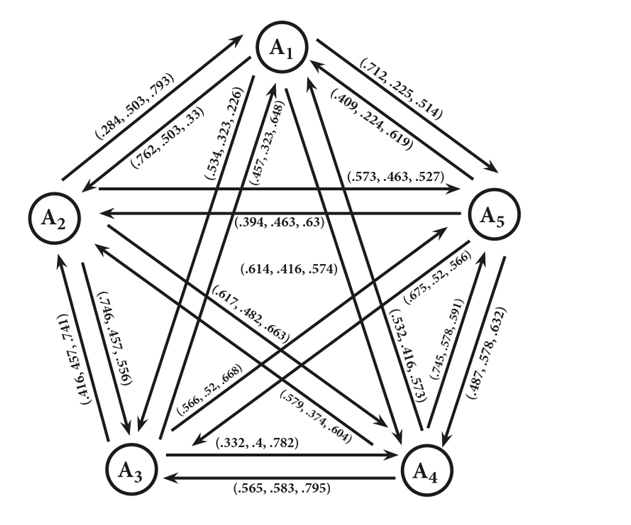Identi cation of most impact factors of CIBIL score using Fermatean Neutrosophic Dombi Fuzzy Graphs
Abstract
Graph theory plays a vital role in modeling real-world scenarios like network security and expert
systems. Various extensions of graph theoretical conceptions have been designed for addressing uncertainty in
graphical network scenarios. The concept of Fermatean Neutrosophic Dombi Fuzzy Graphs (FNDFgraphs)
represents a novel and innovative extension in graph theory, combining the principles of Fermatean Neutrosophic
fuzzy graphs and the Dombi operator. FNDFGs enhances the representation and analysis of uncertain rela
tionships in a graph also it o ers a more comprehensive and exible approach to modeling uncertainty in graph
structures. The main objective of this present research study focused on FNDFGs and their operations. At
the end, an algorithm for Fermatean Neutrosophic Dombi fuzzy multi-criteria decision-making is given, which
incorporate the concepts of Fermatean Neutrosophic sets and Dombi operations. Furthermore, a numerical
example based on the selection of the most suitable CIBIL score application is put forward to illuminate the
aptness of the proposed research work.
Downloads

Downloads
Published
Issue
Section
License
Copyright (c) 2024 Neutrosophic Sets and Systems

This work is licensed under a Creative Commons Attribution 4.0 International License.







